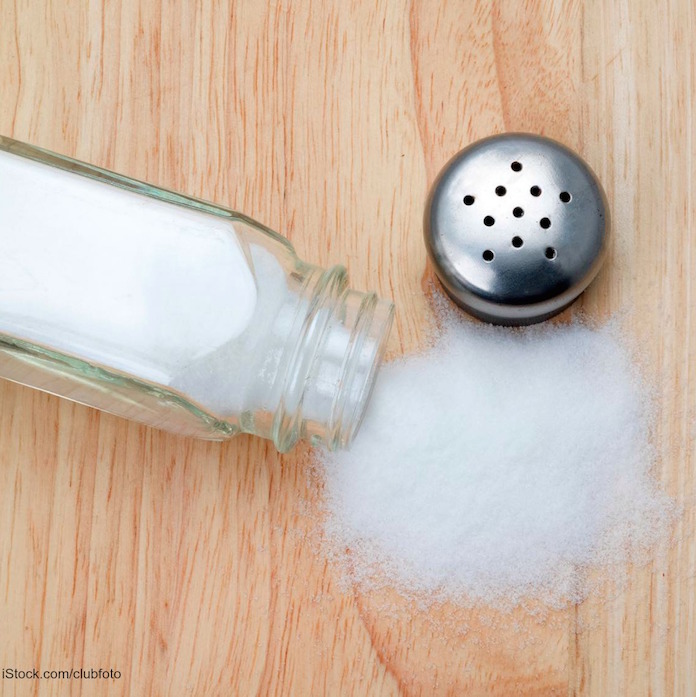A new study conducted at the University of Bonn in Berlin has fond that eating too much salt weakens the immune system, which may make people more susceptible to foodborne illness. Of course, it makes you more vulnerable to all other bacterial infections as well. And a high sodium diet causes hypertension, a risk factor for heart attacks and strokes.

In the study, mice who where fed a high salt diet suffered from “much more severe” bacterial infections. Human volunteers were then fed an additional six grams of salt per day. They also showed “pronounced immune deficiencies.” The amount of extra salt they were given is the salt content of two fast food meals.
The study says that people should eat five grams of salt a day, no more. That is the maximum daily amount recommended by the World Health Organization and is about one level teaspoon.
Most people in developed countries consume much more than that. The Robert Koch Institute in Germany states that on average, men consume ten grams of salt per day and women more than eight grams.
Professor Doctor Christian Kurts from the Institute of Experimental Immunology at the University of Bonn said in a statement, “We have now been able to prove for the first time that excessive salt intake also significantly weakens an important arm of the immune system.”
The process of excess salt intake interfering in the immune system is complex. Other studies have showed the opposite. Skin parasites in lab animals, for instance, heal significantly faster if the animals are given a high salt diet. And some immune cells are very active in the presence of salt. But skin cells are different from other cells in the body: they are a salt reservoir.
This study found that excess salt is filtered out by the kidneys and excreted in urine. The kidneys have a sodium chloride sensor that activates this function. The sensor also causes glucocorticoids to accumulate in the body, which inhibit the most common type of immune cell.
The researchers were able to reproduce this action in mice. They inoculated the mice with Listeria bacteria and put some of them on a high salt diet. The mouse liver had 100 to 1,000 times the number of disease-causing pathogens.
In the human volunteer blood samples, the excessive salt intake also triggered increased glucocorticoid levels. And the immune cells coped poorly with bacteria after the human started a high salt diet.




